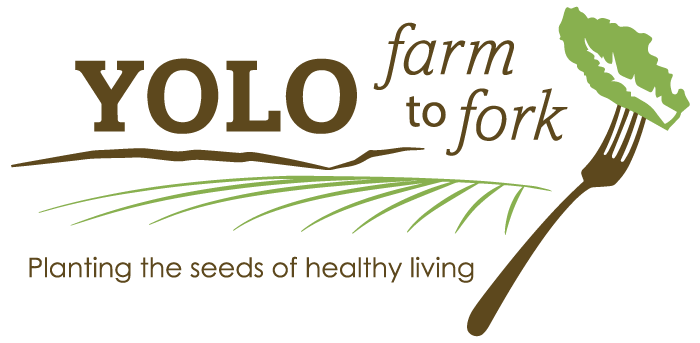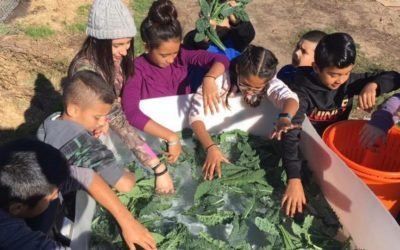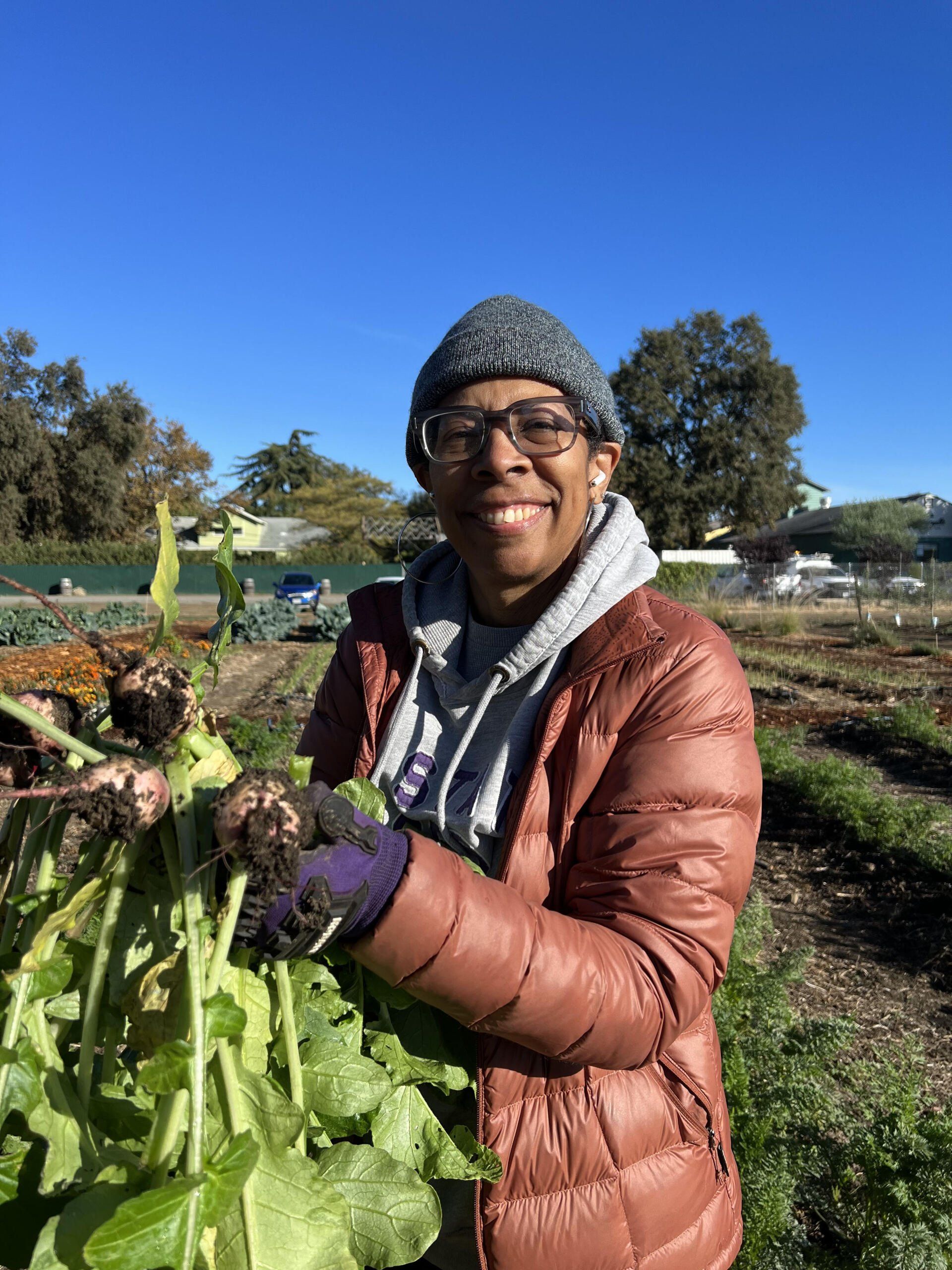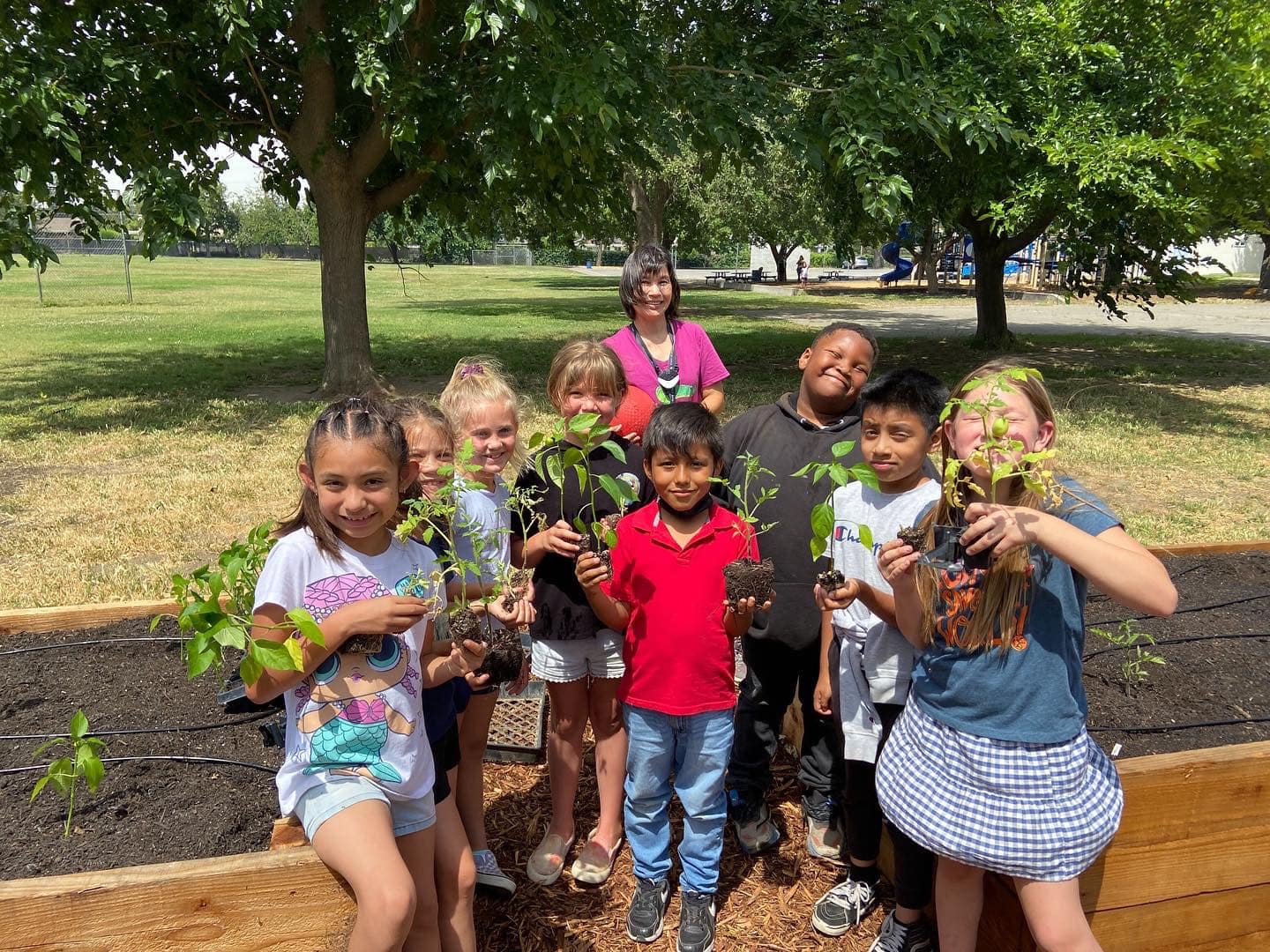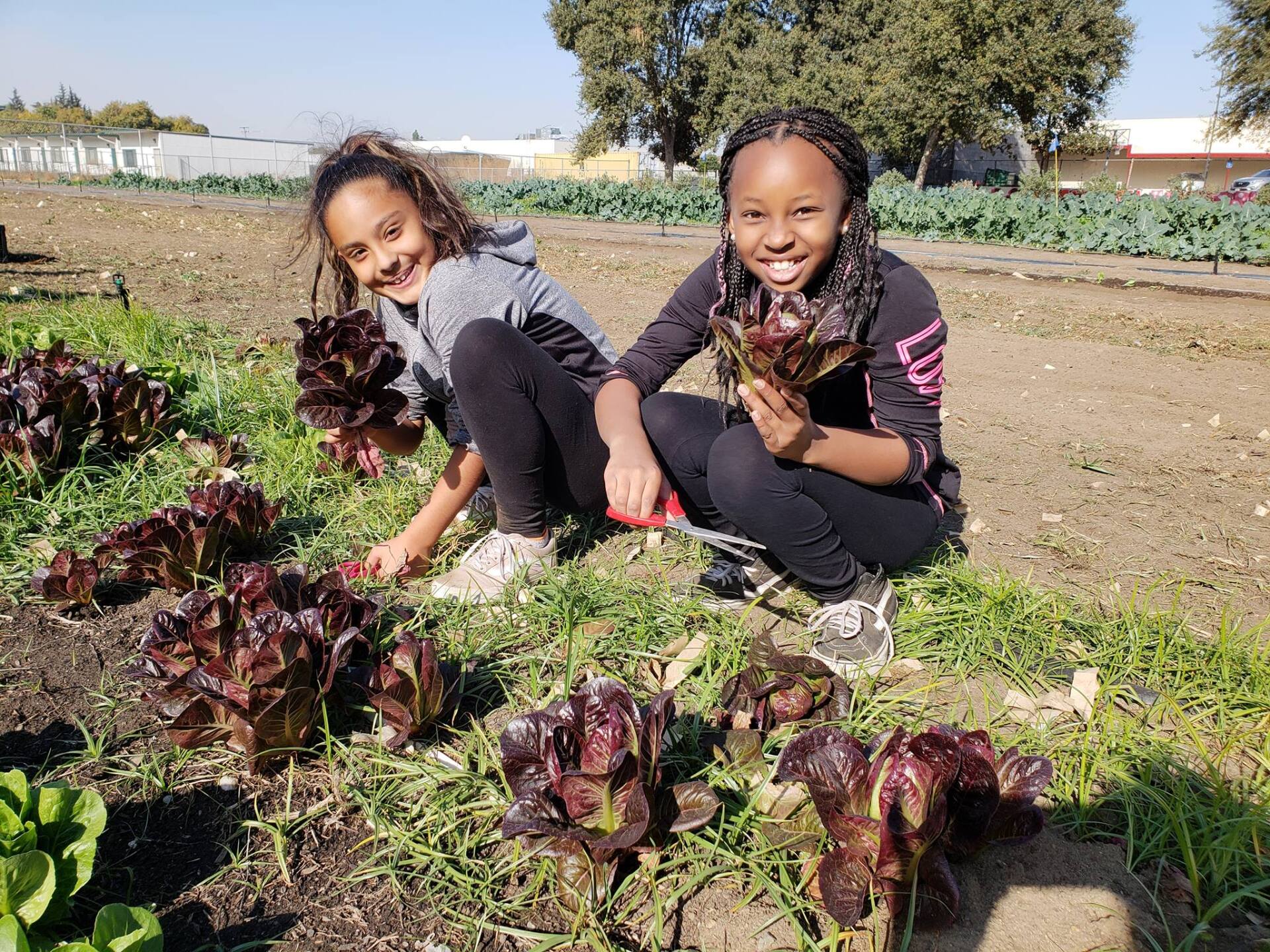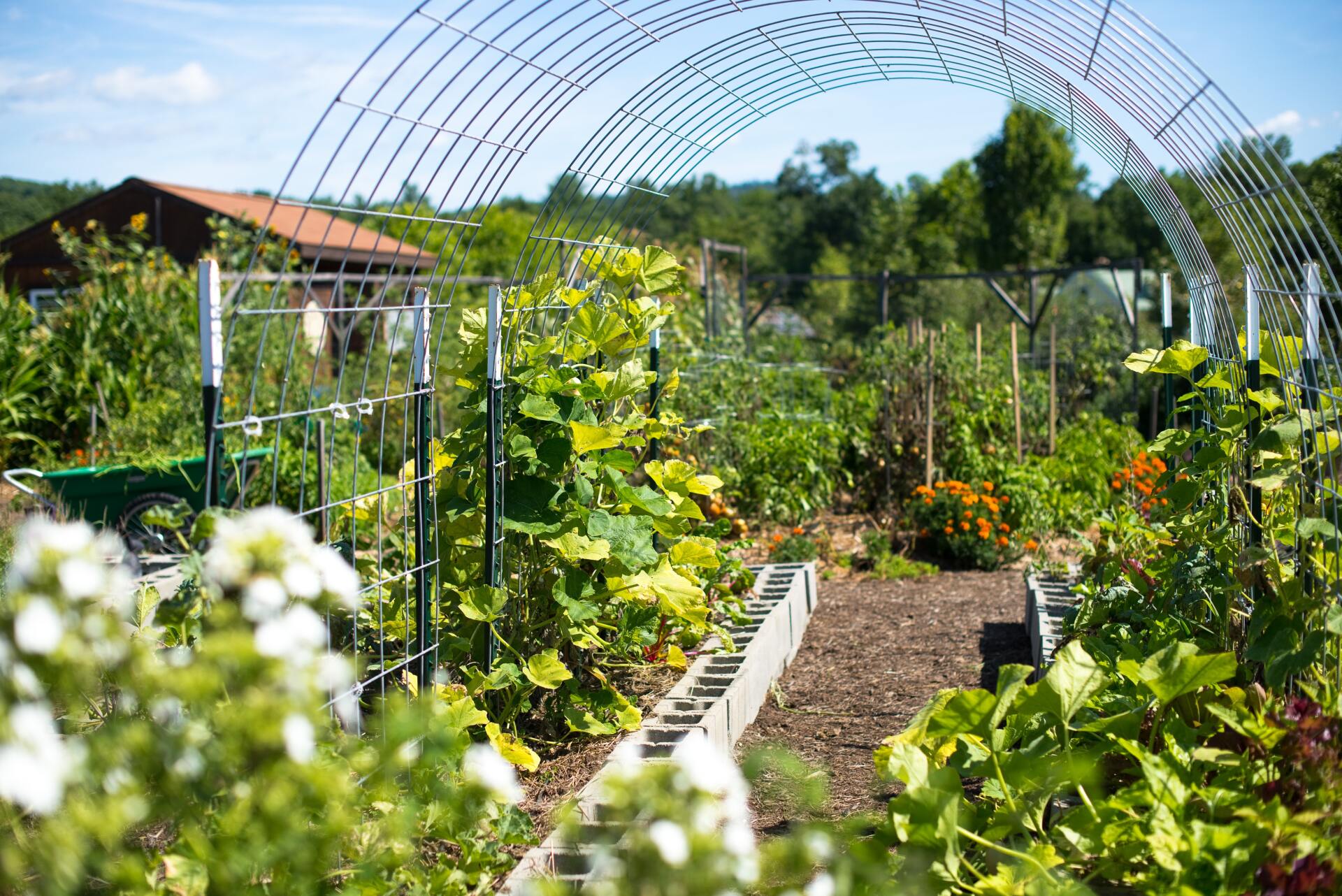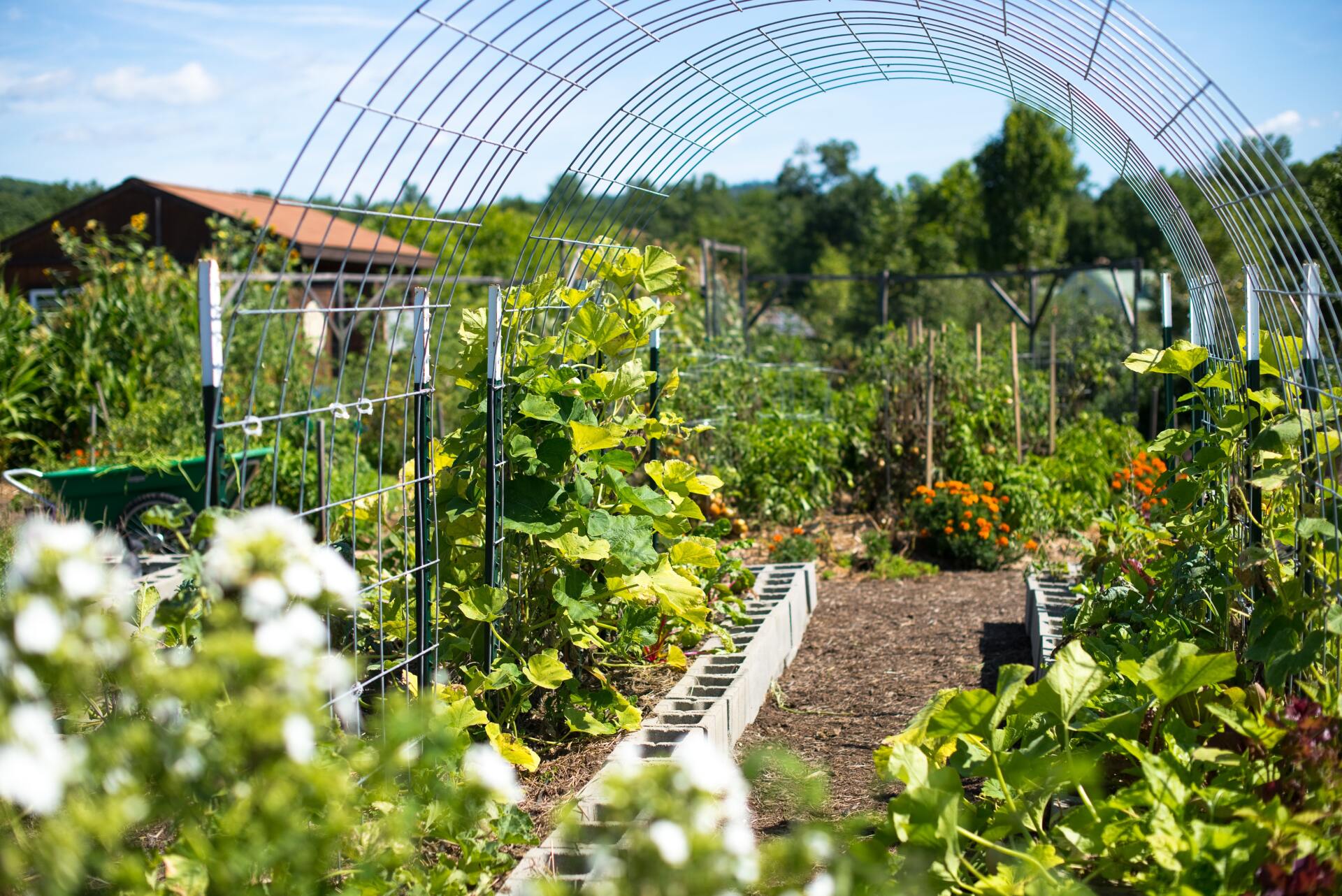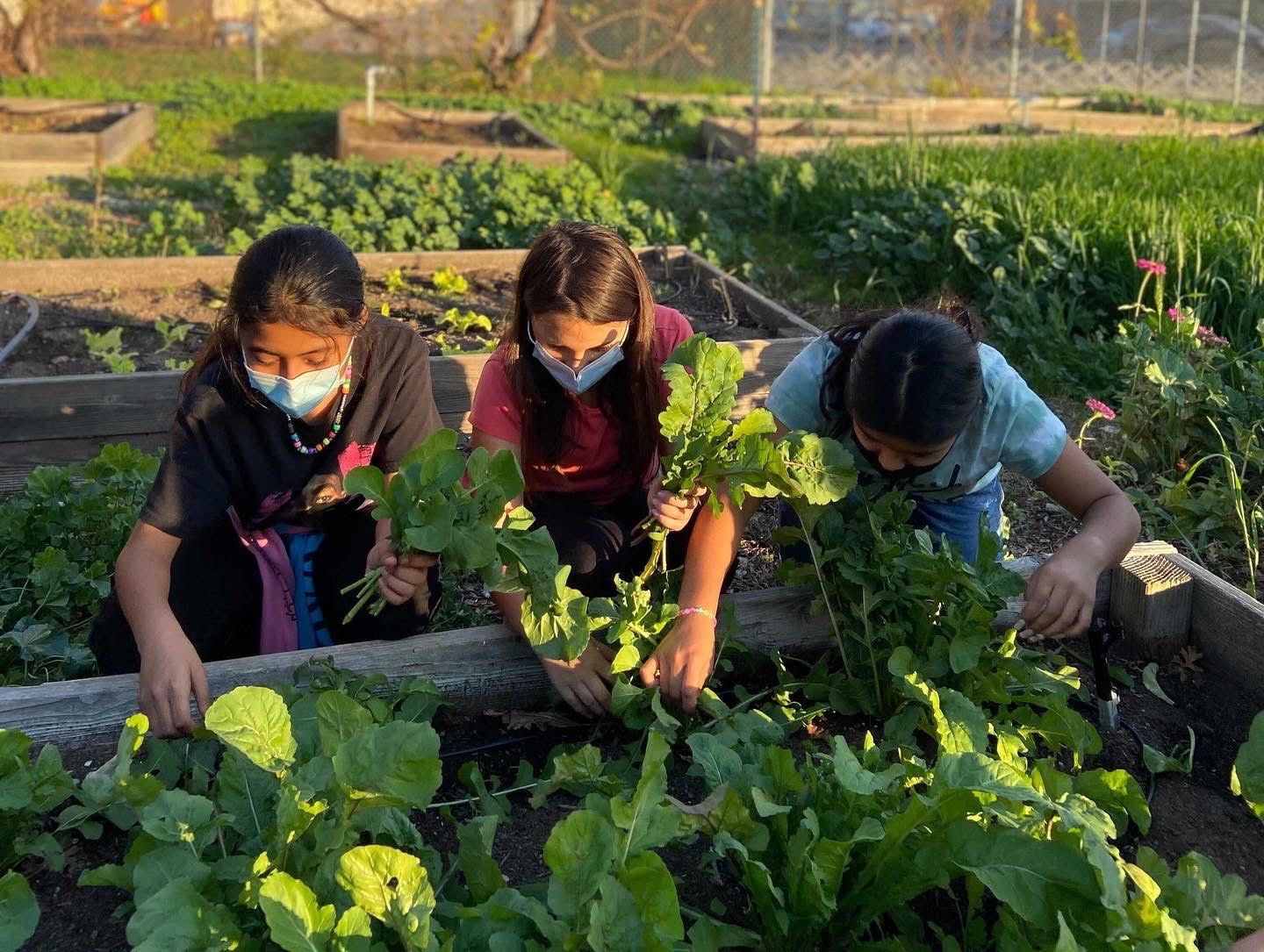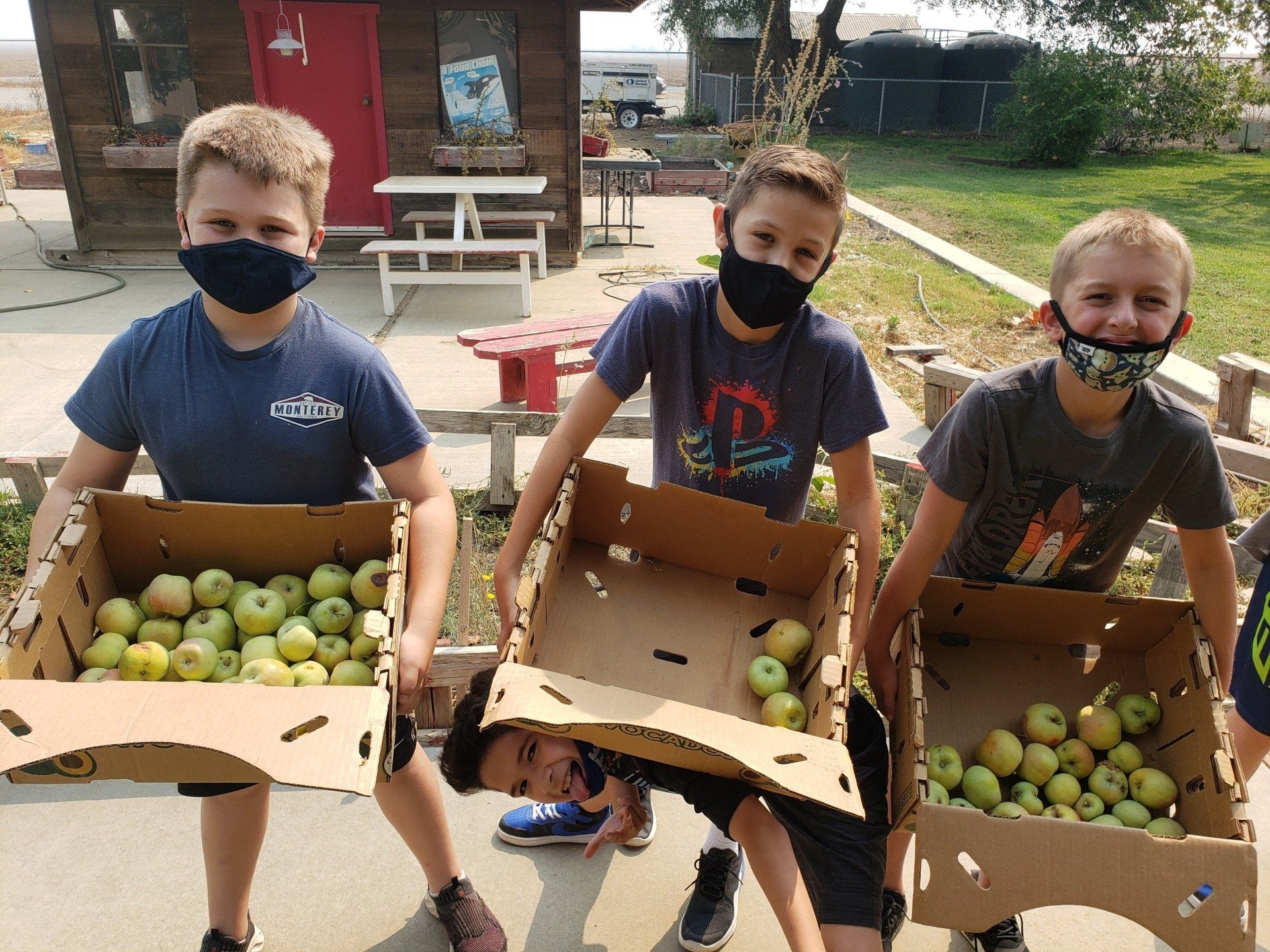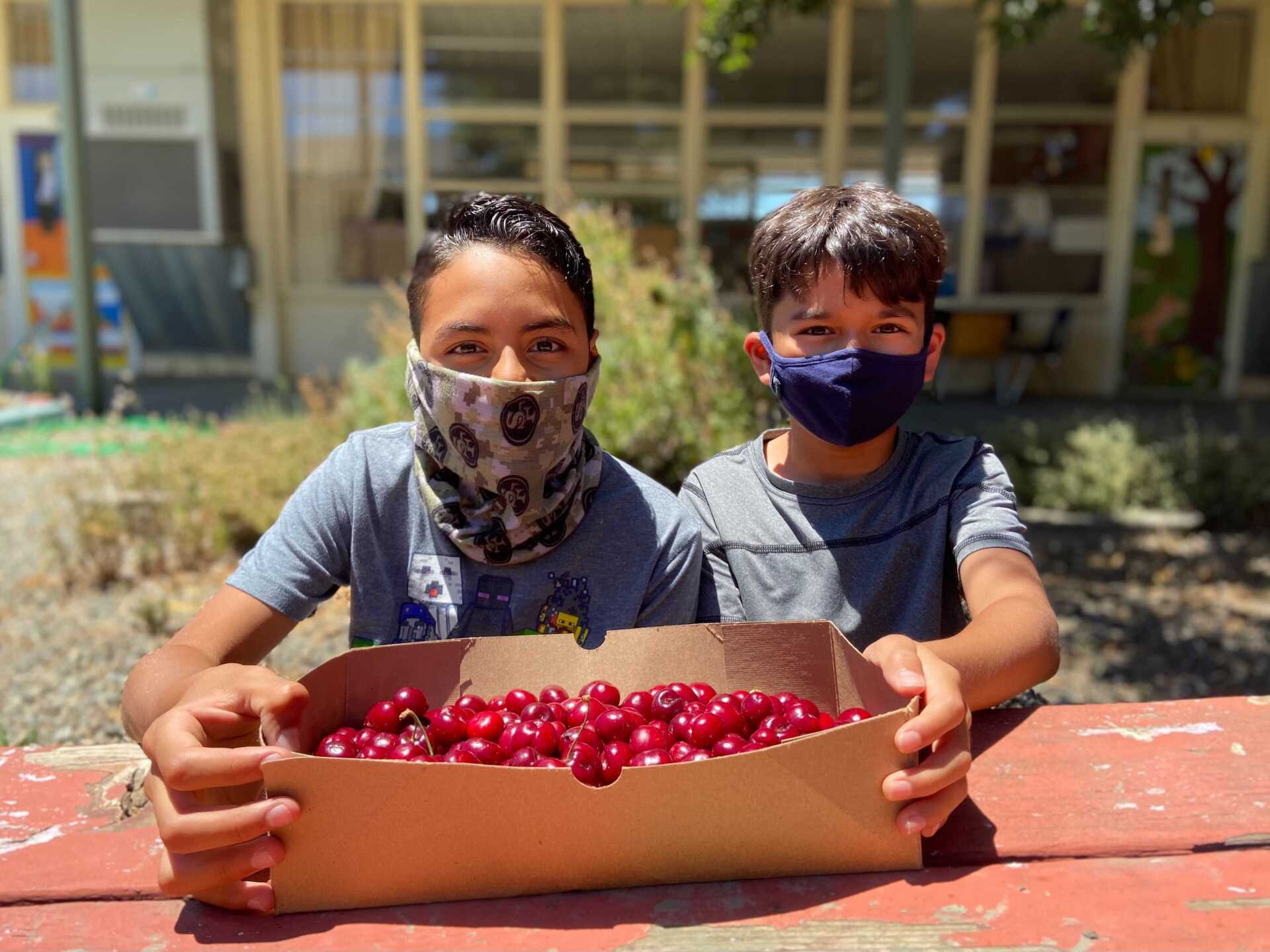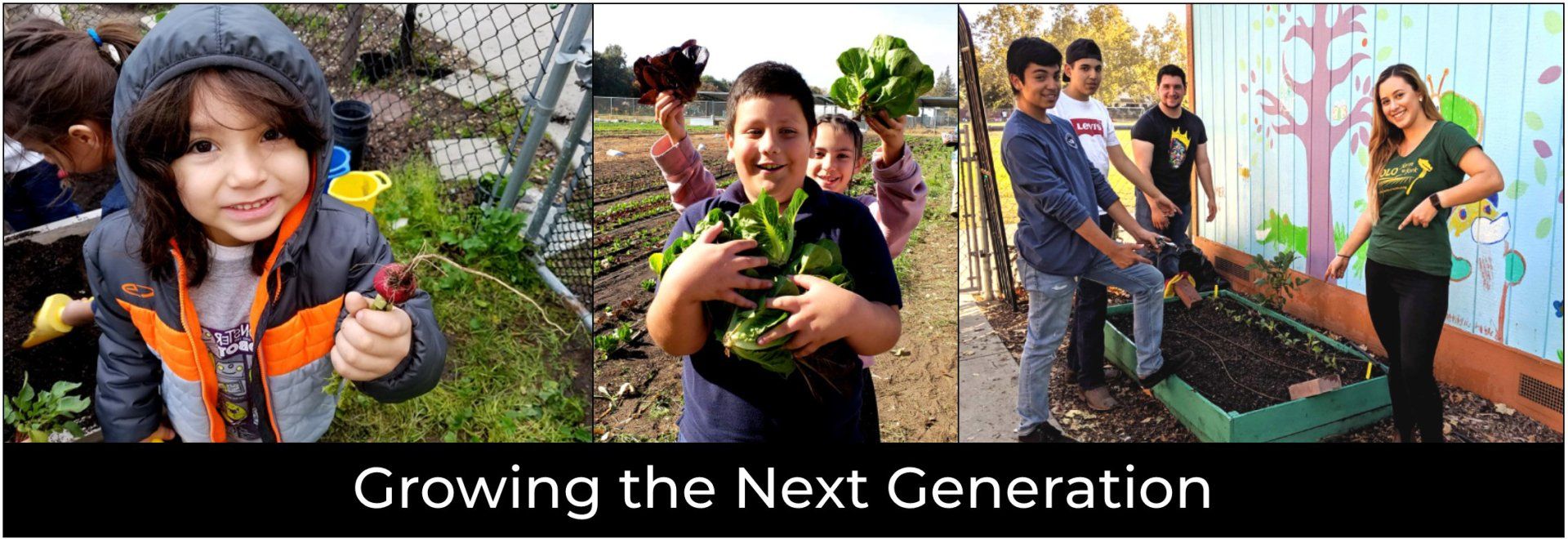Kids Farmers for a Day
November 20, 2018
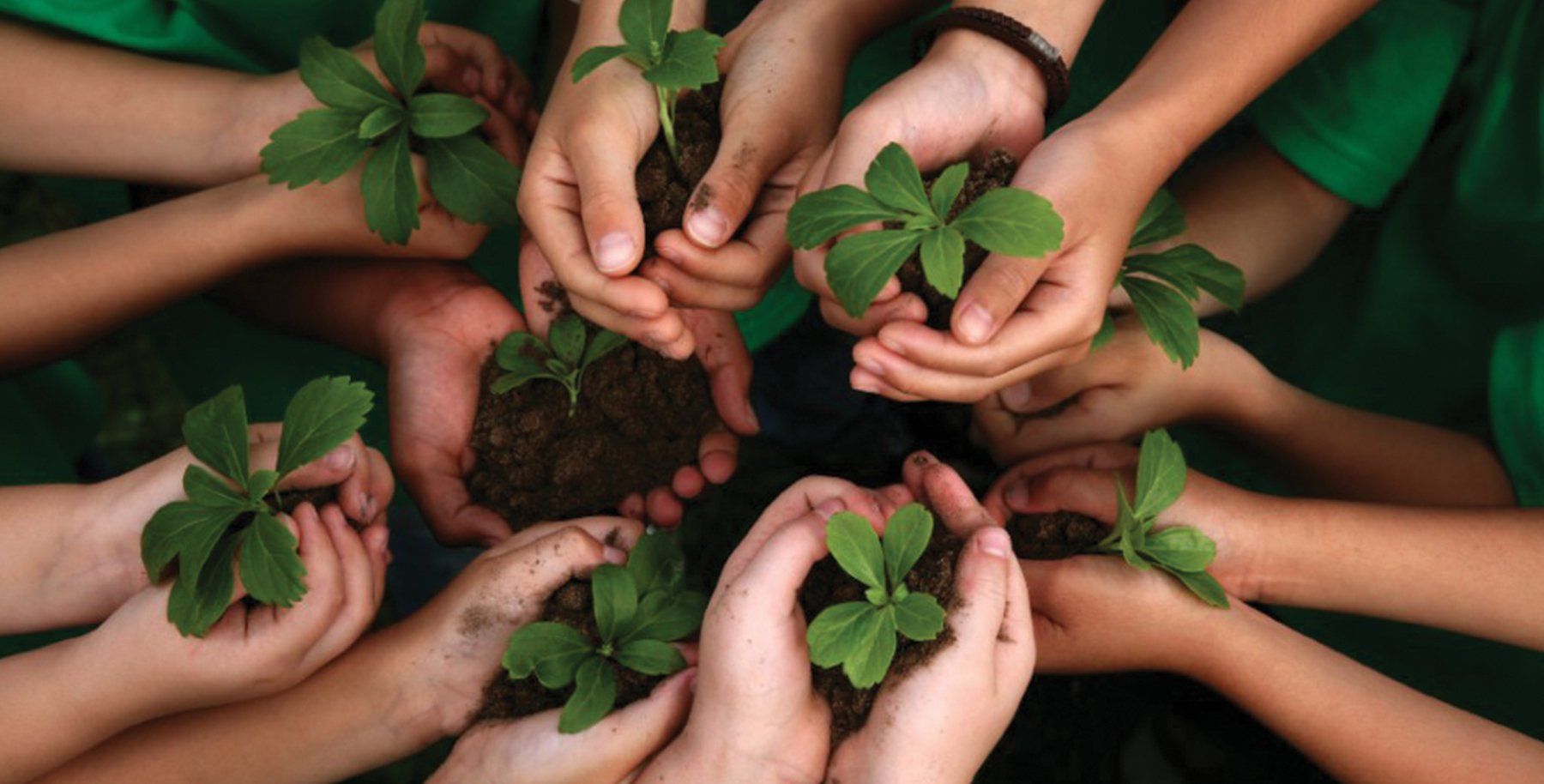
Kids Farmers for a Day
Since September, around 800 Yolo County students have been swapping the classroom for a new setting: a local organic farm. Students from Woodland, Esparto, Davis, and West Sacramento are participating in this year’s farm visits, due to a grant program called “Go Visit a Farm!” run by local nonprofit Yolo Farm to Fork and sponsored by Raley’s.
Students visit either Full Belly Farm in Guinda, a 400-acre diversified organic farm; or Fiery Ginger Farm, a one-acre organic urban farm in West Sacramento.
The two farms may differ in size, but each field trip combines similar elements. Students take part in farm exploration, interactive discussion, and hands-on farm activities that incorporate school curriculum topics and make farm-to-table connections.
Every student participates in a harvest activity and are encouraged to sample the produce they harvest. Other learning activities might focus on identifying parts of a flower, growing vegetables at home, pruning and caring for a fruit tree, keeping livestock, vermicomposting with worms, or recognizing beneficial insects and birds.
Hope Sippola of Fiery Ginger Farm says her goal is to show visiting students “what it is like to be a farmer for a day”. This includes planting, harvesting, and packing vegetables, tasting greens, and learning about the on-site egg-laying chickens.
At Full Belly Farm, Director of Outreach and Education Haley Friel says two highlights of their farm visits are when students tend the newborn piglets and gather freshly laid chicken eggs.
“Some students bravely reach under the chickens to grab the eggs,” she says. “Others have even seen eggs being laid right before their eyes.”
Friel says by visiting a working farm, the students learn “where their food really comes from and all the effort and energy that goes into bringing it to them”.
According to Friel, young people are often surprisingly detached from our food system.
“Even students that live in more rural areas are often disconnected from the realities of our food system and have no context or connection to it,” states Friel.
She credits the farm visits for providing “engaging, exciting experiences” that help students connect to the food they eat and spark “curiosity and interest in the agriculture they depend on”.
Fostering this connection is a prime reason Yolo Farm to Fork created the “Go Visit A Farm!” program six years ago.
President Suzanne Falzone explains, “We’ve been doing farm visits from our very beginnings in 2012. We want kids to experience where food originates and how it grows. We also want to acquaint them with our county’s rich ag heritage.”
With about 800 students participating each year, the program has made close to 5,000 farm visits possible since its inception.
One teacher who has benefited from the “Go Visit a Farm!” program is Vicki Fu. As a fourth-grade teacher at Woodland’s Dingle Elementary, Fu’s classes have participated in the farm visits for the past three years in a row.
Since the fourth grade curriculum specifically centers around California, she feels that visiting a farm helps her students better understand the critical role agriculture plays in the state’s economy. She adds, “Many of our students have parents and family members in the agriculture industry.”
Funding for the farm visit grants comes from Raley’s. Some of the farm visits conclude with a trip to a nearby Raley’s grocery store. There, students see how food harvested at nearby farms can be purchased and taken home by customers, completing the farm-to-fork cycle.
